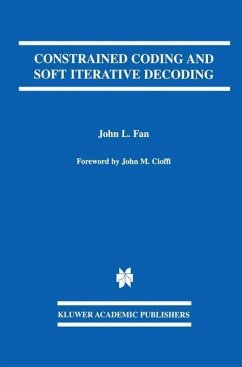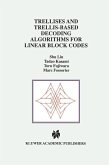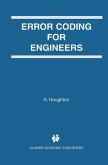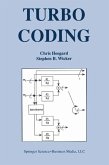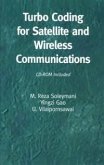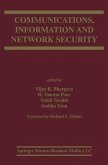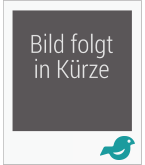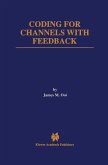Constrained Coding and Soft Iterative Decoding is the first work to combine the issues of constrained coding and soft iterative decoding (e.g., turbo and LDPC codes) from a unified point of view. Since constrained coding is widely used in magnetic and optical storage, it is necessary to use some special techniques (modified concatenation scheme or bit insertion) in order to apply soft iterative decoding. Recent breakthroughs in the design and decoding of error-control codes (ECCs) show significant potential for improving the performance of many communications systems. ECCs such as turbo codes and low-density parity check (LDPC) codes can be represented by graphs and decoded by passing probabilistic (a.k.a. `soft') messages along the edges of the graph. This message-passing algorithm yields powerful decoders whose performance can approach the theoretical limits on capacity. This exposition uses `normal graphs,' introduced by Forney, which extend in a natural manner to block diagram representations of the system and provide a simple unified framework for the decoding of ECCs, constrained codes, and channels with memory. Soft iterative decoding is illustrated by the application of turbo codes and LDPC codes to magnetic recording channels. For magnetic and optical storage, an issue arises in the use of constrained coding, which places restrictions on the sequences that can be transmitted through the channel; the use of constrained coding in combination with soft ECC decoders is addressed by the modified concatenation scheme also known as `reverse concatenation.' Moreover, a soft constraint decoder yields additional coding gain from the redundancy in the constraint, which may be of practical interest in the case of optical storage. In addition, this monograph presents several other research results (including the design of sliding-block lossless compression codes, and the decoding of array codes as LDPC codes). Constrained Coding and Soft Iterative Decoding will prove useful to students, researchers and professional engineers who are interested in understanding this new soft iterative decoding paradigm and applying it in communications and storage systems.
Dieser Download kann aus rechtlichen Gründen nur mit Rechnungsadresse in A, B, BG, CY, CZ, D, DK, EW, E, FIN, F, GR, HR, H, IRL, I, LT, L, LR, M, NL, PL, P, R, S, SLO, SK ausgeliefert werden.
From the reviews of the first edition: `This monograph is a most welcome addition to the coding theory literature. It contains a masterfully written and easily accessible tutorial treatment of new and exciting error-correction codes, such as turbo codes and low-density parity-check (LDPC) codes. In addition, it introduces novel and promising approaches to integration of error correction codes with constrained codes as well as hybrid constructions of algebraic codes and LDPC. While these codes can be applied to any communications channel, special focus is given to the magnetic recording channel. Students as well as professionals in the information sciences will benefit greatly from having this monograph on their desks. I highly recommend it!' Brian Marcus, IBM Almaden Research Center "The book describes topical methods for soft-decision iterative coding ... in a very clear manner. It provides a unified framework for the decoding of error-correcting codes, constraint codes, and channels with memory. I consider a strong point of this book the emphasis on the application of these techniques to a combination of error-correcting codes and constrained codes as used in magnetic and optical storage, and highly recommend it to engineers working in signal processing for storage systems ... ." (L. M. G. M. Tolhuizen, Zentralblatt MATH, Vol. 1051 (26), 2005)

